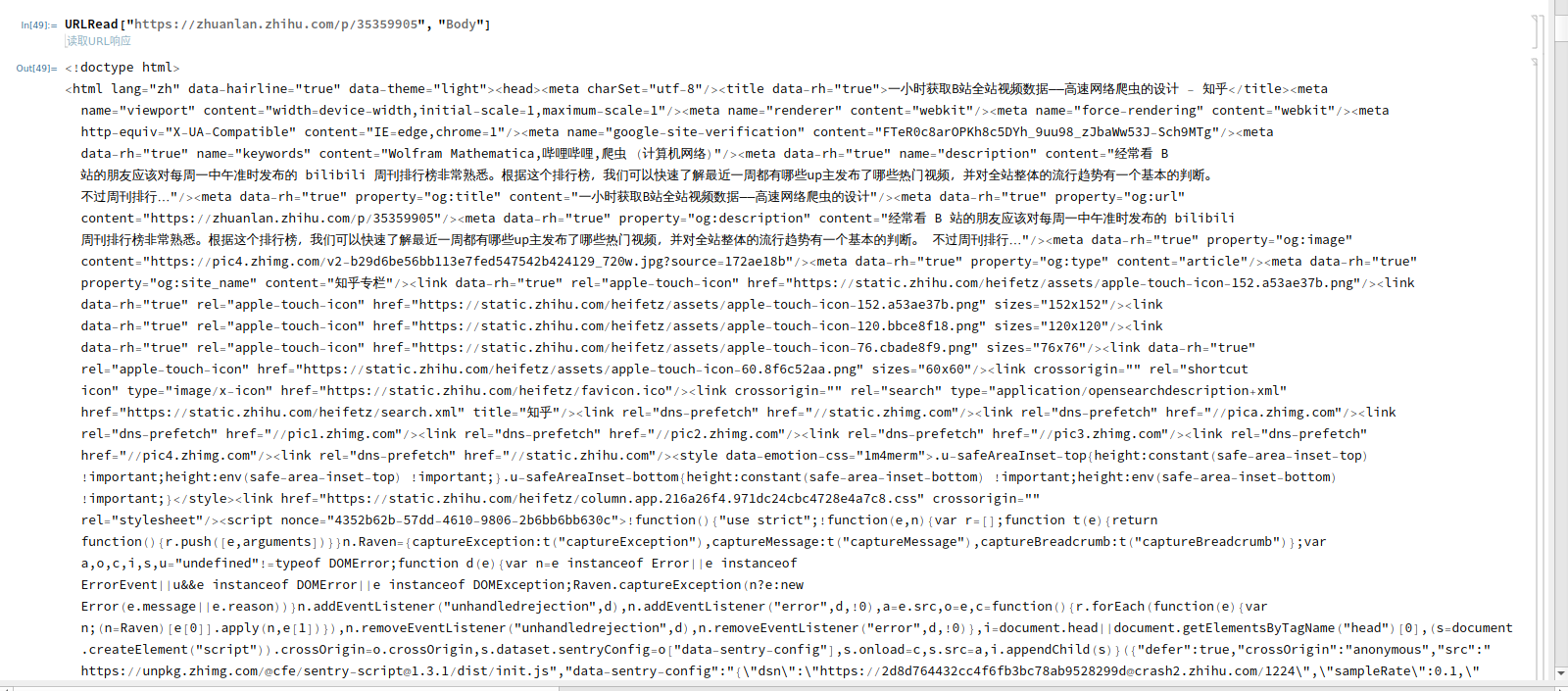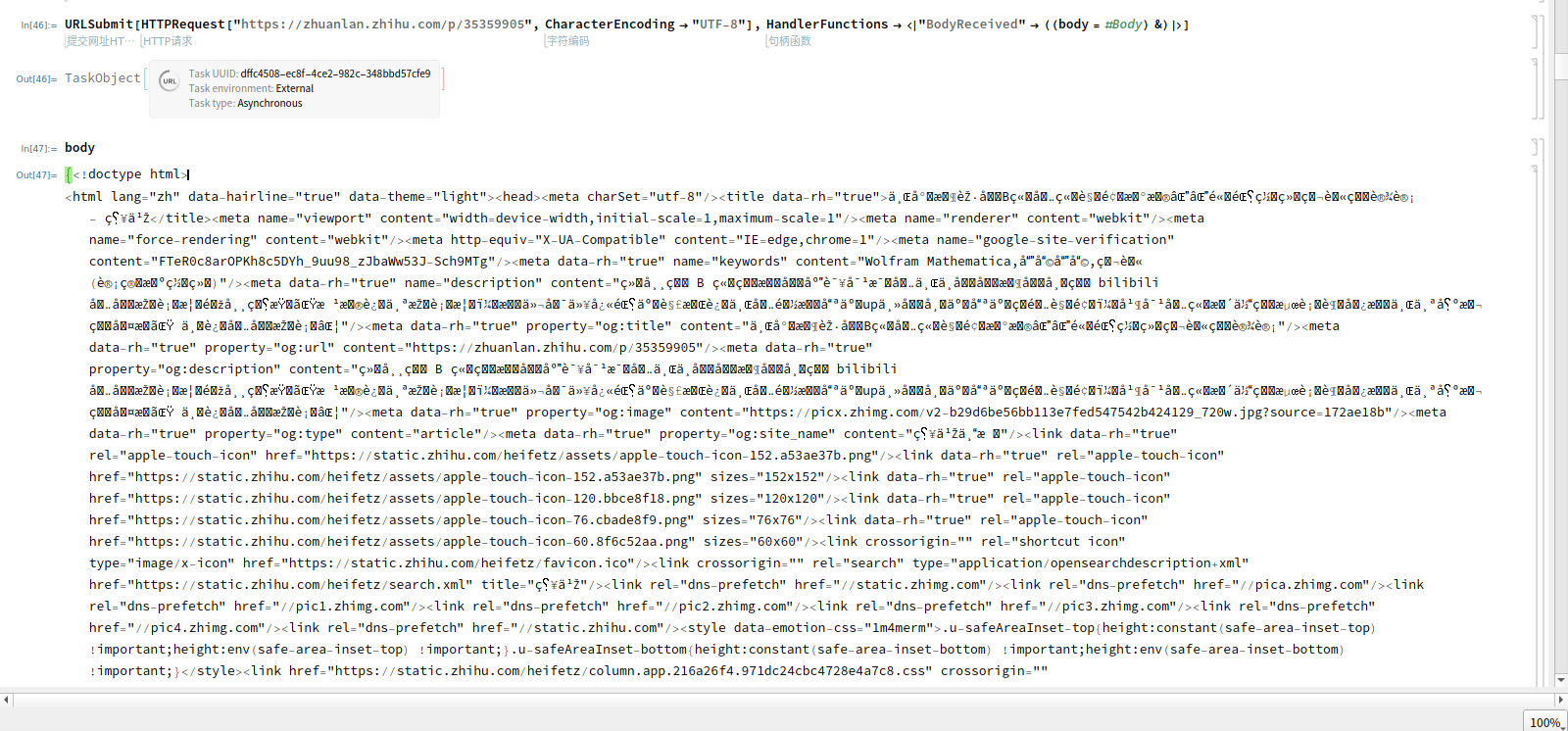When importing content containing Chinese (CJK) characters, correct results can be obtained by using URLread
URLRead["https://zhuanlan.zhihu.com/p/35359905", "Body"]
But when using URLSubmit, the output is garbled
URLSubmit[
HTTPRequest["https://zhuanlan.zhihu.com/p/35359905",
CharacterEncoding -> "UTF-8"],
HandlerFunctions -> <|"BodyReceived" -> ((body = #Body) &)|>]



ContentType->text/html; charset=utf-8. ForURLSubmitis is raw string, so either use Jean-Pierre's answer orFromCharacterCode[ToCharacterCode@#Body, "UTF8"]. $\endgroup$